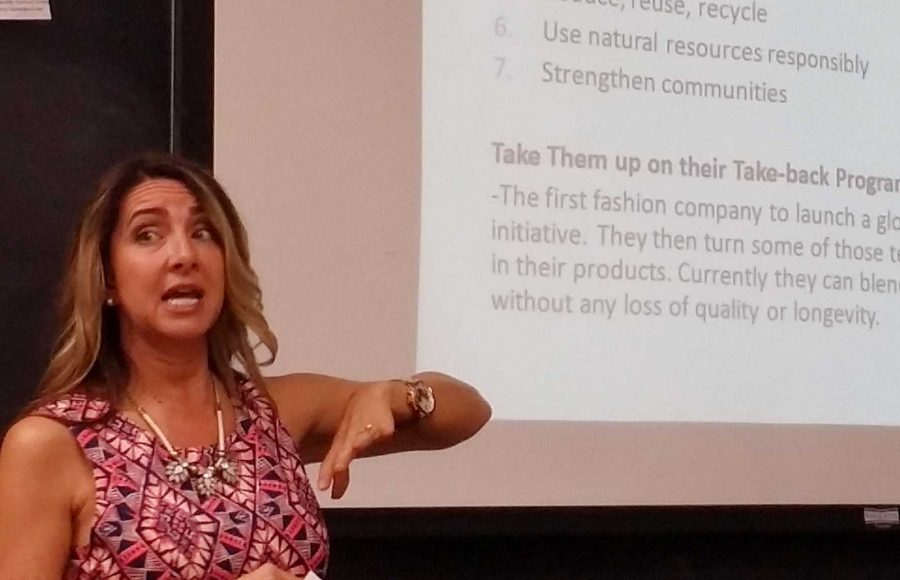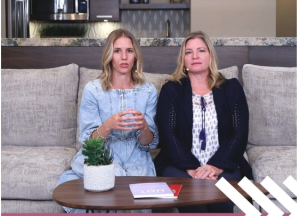Competitive consumption: Do you need it or just want it?
Jill McCall, communication studies instructor, speaks at a lecture titled “Competitive Consumption,” as part of the annual Multicultural Day on April 12. McCall said that competitive consumers buy more stuff than they actually need and that could bring dire consequences. Photo credit: Son Ly
April 13, 2016
Are we buying more than what we actually need is one of the many questions Communication Studies instructor Jill McCall addressed in a lecture titled “Competitive Consumption.”
The lecture went over the reasons why we spend an average of 3.5 percent of our income per year to pursue the habits of a competitive consumer, who buys things they don’t need with money they don’t have to impress people they don’t like. McCall said that we only hurt ourselves when we try to follow this lifestyle.
“If you are not mindful with what you buy, you’re being bitch-slapped by the marketing media,” McCall said. “I ask you to stop being a competitive consumer and be more of a conscious consumer. You have the power and you have the choice.”
McCall said competitive consumption is the spending of money on and the acquiring of luxury goods and services to publicly display economic power.
McCall said competitive consumption brings dire economical, psychological and environmental impacts.
“Research has shown that there’s a connection between an excessively materialistic outlook and increased levels of anxiety and depression,” McCall said.
McCall also explained the strategies to avoid the consequences that competitive consumption brings.
Thinking twice when shopping for new stuff is what McCall recommends before making a purchase. She said this can be accomplished by identifying whether an item is needed or just to wanted, and decide which category is more important.








